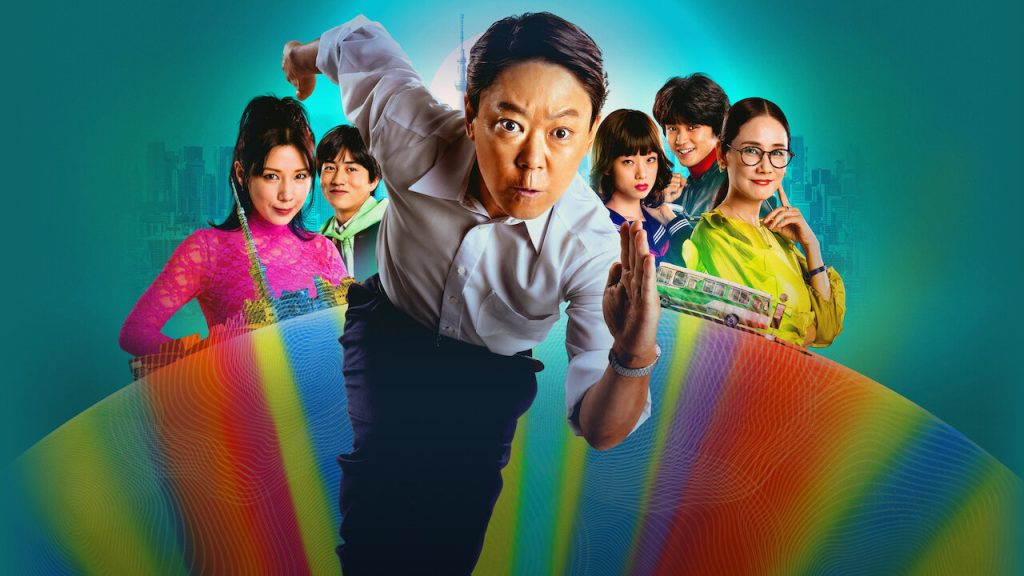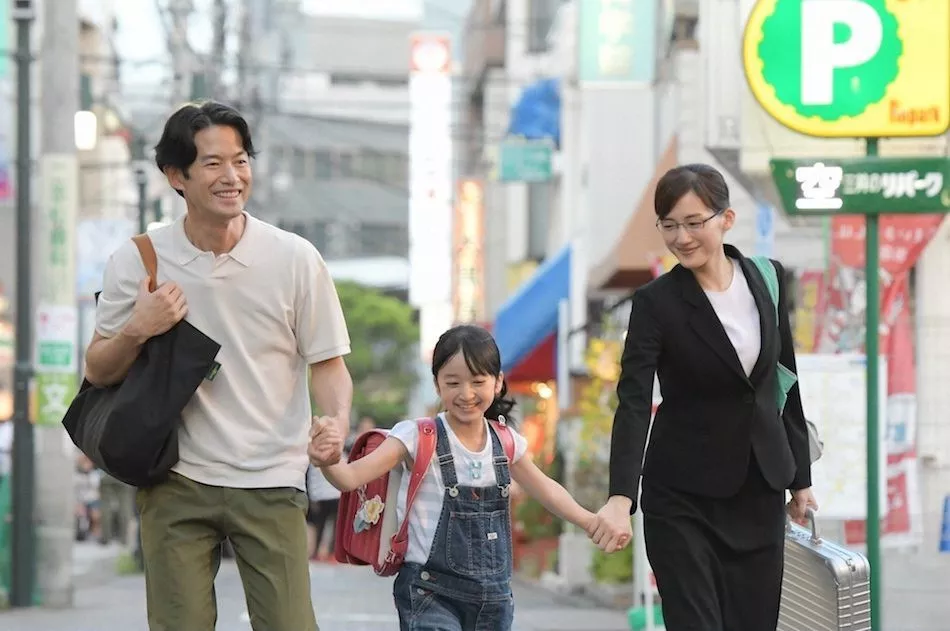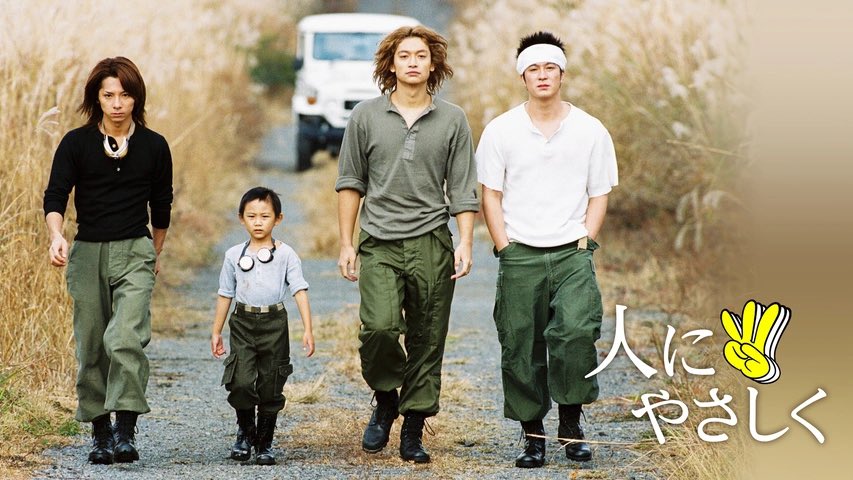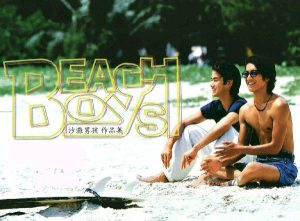This is my ranked list of the best J-Dramas I have watched on Netflix so far. If you would like to recommend me any J-Drama in particular, just leave a comment or get in touch with me on BlueSky or by email! Here are, from least to most favourite, the best J-Dramas on Netflix! Since there are 32 (and counting!) I thought it best to split this up into multiple pages. This page covers places 20-11, click here for 32-20 and 10-1 (links also at the bottom of this page).
20) After School Doctor (2024)

In After School Doctor, Dr. Makino (Kouhei Matsushita) is transferred to work at a small elementary school’s clinic after running into issues at his previous hospital. Dr. Makino is abrupt, blunt, and unyielding. Always quick to speak his mind and to make complaints, and sporting a trademark sour expression, Dr. Makino seems ill-suited to his new role, and in fact even scares the children initially.
However, Dr. Makino is a physician first and foremost, so he is quick to act whenever he observes a child in need. He sees things that the other teachers may have missed, notices small details that indicate larger problems, and tries to help the children as best he can. Each episode basically deals with a different child’s ailment, while also furthering the relationships between Dr. Makino and his new colleagues, as well as delving a little into his previous history at the hospital and how he ended up where he is now.
It’s fairly easygoing, and Dr. Makino has a kind of surly charm to him that keeps you on his side even if he’s a bit blunt and unsociable. I thought one episode in particular was great, but the rest were just fine. There is also a scene where a child has to use a defibrillator kit in a park that was extremely well done. Most of the cases are mildly interesting at best, though, and the stuff at the hospital doesn’t really add much to the show at large. Still, it felt like a worthwhile watch overall.
19) My Housekeeper Nagisa-san (2020)

Salarywoman Mei (Mikako Tabe) finds herself too busy with work to really take care of her household chores, so as a birthday gift her sister arranges the titular housekeeper Nagisa-san (Nao Omori). Resistant at first, Mei eventually finds herself coming to enjoy Nagisa-san’s work (especially the lunches and dinners he prepares for her), and wants to extend his contract to continue his services.
However, she also wants to hide the fact she has to rely on a housekeeper from the rest of her family and friends, and often concocts tall-tales to explain away Nagisa-san’s appearance at her apartment. I enjoyed Mei’s interactions with her family and colleagues, however the romantic angle that’s central to the show just seemed strange and forced. The show is light enough that it’s easy to enjoy despite its issues however, but I would definitely avoid the “special” which is just a glorified clip show and almost entirely pointless.
18) Nodame Cantabile (2006)

Nodame Cantabile is set at a music school and tells the separate but often intersecting stories of conductor Shinichi (Hiroshi Tamaki) and pianist Megumi (Juri Ueno). Shinichi is serious about his music career, aspiring to reach the pinnacle of his field and be mentored by a famous conductor he was fond of in his youth, while Megumi plays for fun and aspires to teach kindergarten rather than pursue a career in music.
I believe this is based off of a manga, and it very much follows that sort of tone. There’s a good bit of cartoon violence sprinkled throughout which can be a bit jarring if you’re not expecting it (like I wasn’t, the first time it happened!), but it’s generally in-keeping with the vibe of the show as a whole. The show is filled with engaging and silly characters, and there are some really great musical sequences dotted throughout. Juri Ueno in particular puts on a great performance, and her goofy carefree innocence is just infectious. It’s probably a little bit too silly to really make its central relationships believable or to have you properly root for anyone in any serious way, but at the end of the day it’s fun and you’ll enjoy yourself while it’s on.
17) Extremely Inappropriate! (2024)

Extremely Inappropriate! is another show on this list concerned primarily with nostalgia, this time for the 1980s. The lead is Ichiro Ogawa (Sadawo Abe), a highly feared middle school physical education teacher and coach living in 1986. In his work, he makes frequent use of verbal abuse and corporal punishment. He is a widower, living in an apartment with his teenage daughter. One day, he takes a bus into town and inexplicably ends up almost 40 years in the future, in 2024. Obviously this results in culture-shock and fish-out-of-water type humour, and Ichiro meets and eventually befriends numerous present-day people.
It’s quite a fun show, doesn’t take itself too seriously, but also makes some strange choices. There is a musical number near the end of each episode, which I wasn’t really a fan of, and there’s one plot-twist in particular that just makes many prior interactions between certain characters very…uncomfortable, to say the least. It’s light sci-fi fare, but also hopes to examine how cultural attitudes of the past and present mesh (or not), how an older style point-of-view can sometimes be valuable, how some things are best left in the past, and even how sometimes “progress” might be anything but. It has enough fun with its premise and characters that it’s definitely watchable (with a few sweet moments thrown in for good measure), but probably not something I’ll seek out for a rewatch.
16) No Side Game / No Side Manager (2019)

This is listed on Netflix as No Side Manager but it’s official name (going by Letterboxd, the title screen, IMBD etc) seems to be No Side Game. I couldn’t pick which title to use for the heading, so just decided to include both!
After a demotion from an executive position at head office, salaryman Hayato Kimishima finds himself transferred to work in the manufacturing arm of the corporation, in a factory outside of the big city. Part of his new role is taking charge of the operation of the factory’s failing rugby team. However, Kimishima hates rugby, and has no real idea how a rugby team should be run. The series follows him as he ingratiates himself with the team, learns about the sport (and in the process, about himself), and tries to turn around the team’s fortunes and steer them to victory.
Basically, there were two parts to this show: the rugby parts and the corporate parts. For me, the rugby parts were the most appealing by far, while the majority of the corporate stuff was incredibly uninteresting. The two would intertwine (the company needs to fund the team etc etc) but I would mostly zone out during these sections and just wait for the rugby stuff to start happening again.
I don’t even like rugby, particularly. I don’t have a great understanding of the rules, I only know the most basic stuff about it, but nonetheless the show presents it in a very exciting, dramatic way. Since it’s such a physical game, it really lends itself to stories about overcoming weakness, being determined etc. However the real strength in the show’s treatment of rugby isn’t so much the gameplay itself, but in its earnest, full-throated commitment to displaying all of the best parts of team sports in general. Team unity, hard work, determination, spirit, having goals and working towards them, community. What’s important in No Side Game isn’t just winning, but in giving everything for the cause and giving everything to your community. I do wish there was less of the corporate espionage type stuff in the show, but spending time with the team and watching them grow made the whole thing worthwhile in the end.
15) Old Rookie / The Old Dog, New Tricks?

Old Rookie (or, as Netflix have bizarrely titled it The Old Dog? New Tricks) is another workplace J-Drama, set in a sports management agency. The protagonist is Ryotaro (Go Ayano), a footballer in his late 30s who is forced to retire when the lower division team he’s playing for suddenly folds, and he’s unable to find another team willing to take him on. The show follows the highs and lows of his new career managing active athletes from a variety of different sporting backgrounds.
What I liked about this show is that each episode dealt with a different client (or potential client), and since each client was different, with different ambitions and needs, and indeed all playing completely different sports, the format felt varied enough that it was able to avoid becoming too stale. The subplot of Ryotaro’s football career coming to a definite end was also dealt with in a quite satisfying way, allowing him to receive the closure he needed and delivering a message that even if one chapter in your life is over and done with, you can still find new challenges and rewards if you allow yourself to move on.
The supporting cast (Ryotaro’s workmates and family) are also fairly engaging and helped keep my interest in the show from waning, as I didn’t feel like Ryotaro was compelling enough to carry the show on his own. Overall the show kept me satisfied, but it seems unlikely that I’d like to revisit it in future.
14) Stepmother and Daughter Blues (2018)

In Stepmother and Daughter Blues, widower Ryoichi (Yutaka Takenouchi) has remarried, with Akiko (Haruka Ayase) his new bride. However, Akiko has to ingratiate herself with new step-daughter Miyuki (Naho Yokomizu), who has no interest in accepting a new mother figure.
Akiko is a very strait-laced, professional businesswoman and approaches all problems in a very meticulous way. She tries to work out the best way to be accepted by Miyuki, and of course some of her attempts are much less successful than others. It’s a show dealing with themes of loss and family, and the easygoing Ryoichi and prim and proper Akiko make for interesting, albeit very contrasting, pair.
I can’t really say any more about the show from here, as going into any sort of detail would just be a spoiler for the show as whole. I will say that the show doesn’t remain one about a stepmother trying to win over her stepdaughter, but instead changes into something different. In the end, it is still about people and their relationships (it, thankfully, doesn’t change into a murder mystery or anything like that!), but I think I would have enjoyed this more if it stayed a more straightforward “woman tries to become accepted by her new family” type story. It’s still good overall though, fun and sometimes sweet, with enjoyable performances (particularly by Ayase, who tends to be great in everything).
13) Be Nice To People (2002)

Be Nice to People is the story of three former delinquents now living in the same house together who wake up one day to find a young boy named Akira (Kenta Suga) at their door with a letter from his mother, asking to be looked after. The three are unable to find a relative to look after the boy, so in the meantime decide to take him in themselves.
The main appeal of this show are its three male leads: Zen (Shingo Katori), Ken (Koji Kato), and Taro (Mitsuro Matsuoka). These three brash, delinquent goofballs couldn’t be any more different from Akira, who came from a rich family and is much softer around the edges. The three men try to teach Akira about life and toughen him up a little bit, while also dealing with problems of their own. Although delinquents, the men have their hearts in the right place, and their three differing personalities, histories, and goals make this an interesting and engaging show to watch. They’re all trying their best, and it’s very easy to cheer them on in their efforts.
There is also a police subplot about trying to locate Akira’s father who’s wanted for corporate misdeeds, but that part of the show is by far the least interesting. Thankfully, it’s only a very small part of it. Incidentally, the show’s title comes from a song by Japanese punk band The Blue Hearts called Hito Ni Yasashiku and is bloody fantastic. The song plays at the end of each episode, and another Blue Hearts song Yume (Dreams) plays during its opening titles. This means it’s one of the few shows where I don’t want to skip the opening titles, instead just enjoying the music.
12) If My Wife Becomes an Elementary Student (2022)

This one has a fairly odd concept, but it’s also unexpectedly sweet. If My Wife Becomes an Elementary School Student deals with the grief and loss associated with the sudden and unexpected death of a loved one. Keisuke (Shinichi Tsutsumi) loses his wife Takae (Yuriko Ishida) in a car accident, and in the ten years following this lives on in a state of quiet mourning with his daughter Mai (Aju Makita).
The pair of them have lost their zest for life, existing almost as zombies, clearly unable to get over the passing of their wife and mother. One day, a ten year old girl appears at their door claiming to be the reincarnation of Takae and although sceptical at first, Keisuke and Mai eventually accept her into their lives and become rejuvenated themselves.
Like I said, it’s very odd! Still, it’s also quite sweet. It deals with themes of grief, loss, family, and moving on. The little girl has her own story as well, with a family of her own, and the exploration of this side of things is also quite interesting. Her name is Marika (Nono Maida), and before she was taken over by the spirit of Yuriko she was dealing with her own problems with her distant and sometimes unpleasant single mother Chika (Yoh Yoshida). This is another that’s based on a manga, and I think there’s also an anime series of. Overall I enjoyed this show, strangeness notwithstanding, and Marika’s performance in particular was very good.
11) The Full-Time Wife Escapist (2016)

Unemployed after leaving post-graduate school, 25 year old Mikuri (Yui Aragaki) is single, lives with her parents, and is unable to find herself a job. In the meantime her father gets her a part-time cleaning job, and she ends up as a housekeeper on Fridays for 36 year old tech worker Hiramasa (Gen Hoshino). The two eventually come to a mutually beneficial arrangement: the pair will marry, Mikuri will move in to Hiramasa’s apartment (sleeping separately, of course), and he will pay her a wage to maintain the household while he focuses on his career. A contract is even drawn up to make it all official, with various addendums and amendments as the series progresses.
Of course, only Mikuri and Hiramasa themselves know about the contract. For everyone else they must act as an actually engaged couple, even meeting each other’s parents and making wedding plans. Inevitably, the two begin to grow close for real, complicating their contractural arrangement. The chemistry between the central pair works very well: Hiramasa’s quiet and reserved nature rarely betraying his true feelings, while Mikuri is a little more forthright but still reticent to overstep the boundaries of their mutual contract. In terms of passion, it’s quite subdued. Not an explosive fireworks type of courtship, but still meaningful and romantic in its own way.
Mikuri and Hiramasa’s respective friends and families also play a large role in the show, fleshing out the supporting cast. Some are suspicious, trying to figure out ulterior motives or looking for holes in this out-of-nowhere marriage story, while others mostly just try to be happy for the couple.
Overall it’s quite a fun concept, trying to contain marriage within a strictly logical and passionless contractural framework, but pesky things like love and affection slowly creeping in and gumming up the works. Again, it’s quite a light watch, and there’s a two-hour New Year’s sequel special on Netflix too if you watch through the entire series and want a little more. For added cuteness, the actors who played Mikuri and Hiramasa ended up getting married in real life after meeting on the show too!
Links/Added Bits
As mentioned in the opening blurb, I will be updating this whenever I watch another J-Drama on Netflix. If you have any suggestions or recommendations, feel free to leave a comment or get in touch via my BlueSky or email! There was one J-Drama that I started but didn’t include on this list, as I only made it about an episode and a half in, which was called Dearest. The show seemed fine, but it was a crime/murder type show which isn’t really my sort of thing, so I gave up.
I also have a full ranked list of J-Dramas I have watched, which can be found on Letterboxd here.











2 Responses